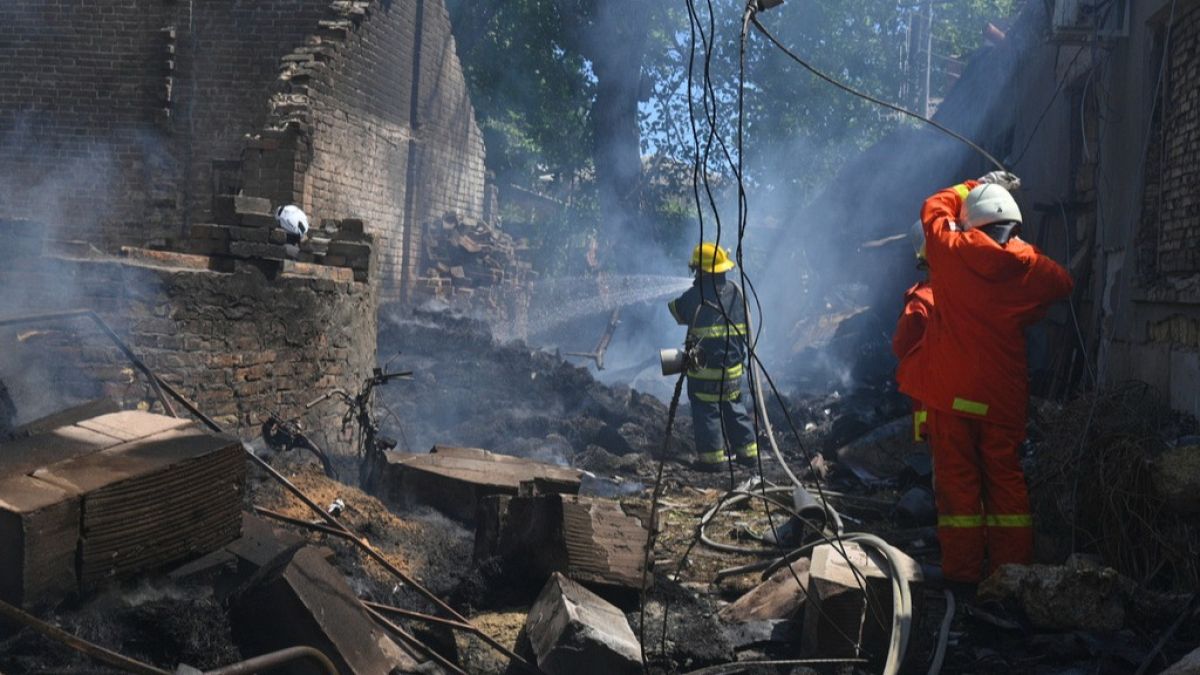

In recent developments, the international stage has observed intensifying complexities in regions affected by conflict, demanding global attention and diplomatic engagement. A recent and significant aerial attack on Ukraine marks a marked escalation in the ongoing tensions between Ukraine and Russia. Ukrainian President Volodymyr Zelenskyy denounced this attack as the most expansive of its kind, with 741 drones and missiles being launched in a single day. According to Zelenskyy, who criticized these actions as contradictory to Russia’s claims of seeking peace, the assault reflects a deepening strategy of intimidation and terror against Ukraine. In response to these hostilities, he urged the global community, particularly Western nations, to impose further sanctions, emphasizing that a resolution can be achieved only through strength and unity.
In parallel, concerns regarding the destabilizing situation in Georgia have surfaced among European nations. European foreign ministers voiced their apprehensions following a progress report concerning Georgia’s accession to the European Union. The ministers’ joint statement highlights fears about the deteriorating conditions within the country, emphasizing the need for sustainable resolutions and engagement to bolster stability and foster progress in its international relations.
Amid these European tensions, the Middle East sees its own escalation of violence, with a tragic incident in the Gaza Strip capturing significant attention. Reports indicate that at least 31 Palestinians were shot dead while on their way to receive humanitarian aid. This incident occurred in conjunction with additional Israeli airstrikes that resulted in further casualties, including children. Witnesses and Palestinian hospital officials have described the situation as dire, reflecting one of the deadliest episodes in the region over the past year. The Red Cross in Rafah, overwhelmed by the influx of injured individuals, reported the most substantial number of fatalities and injuries attributed to gunshot wounds since its operations began.
The gravity of the humanitarian crisis prompted European leaders to contemplate revisiting their diplomatic ties with Israel, demonstrating the broader implications of such regional conflicts on international diplomacy. The discussions revolve around the potential downgrading of economic and political relationships, underscoring the global repercussions of local disputes. This reflects a critical point for international communities to evaluate and address the complexities of these enduring conflicts.
In response to these events, a pattern emerges of necessitated international cooperation and dialogue to navigate the pathways to peace. It is evident that multilateral efforts, combining diplomatic and humanitarian strategies, are crucial in alleviating tensions and fostering stability globally. The growing interdependence of nations highlights the importance of viewing these conflicts not as isolated incidents but as integral components of a larger, interconnected geopolitical landscape. As the world remains vigilant, the emphasis shifts towards constructive dialogues and peace-building measures that have the potential to transform moments of crisis into opportunities for lasting peace and understanding.
Source: {link}
